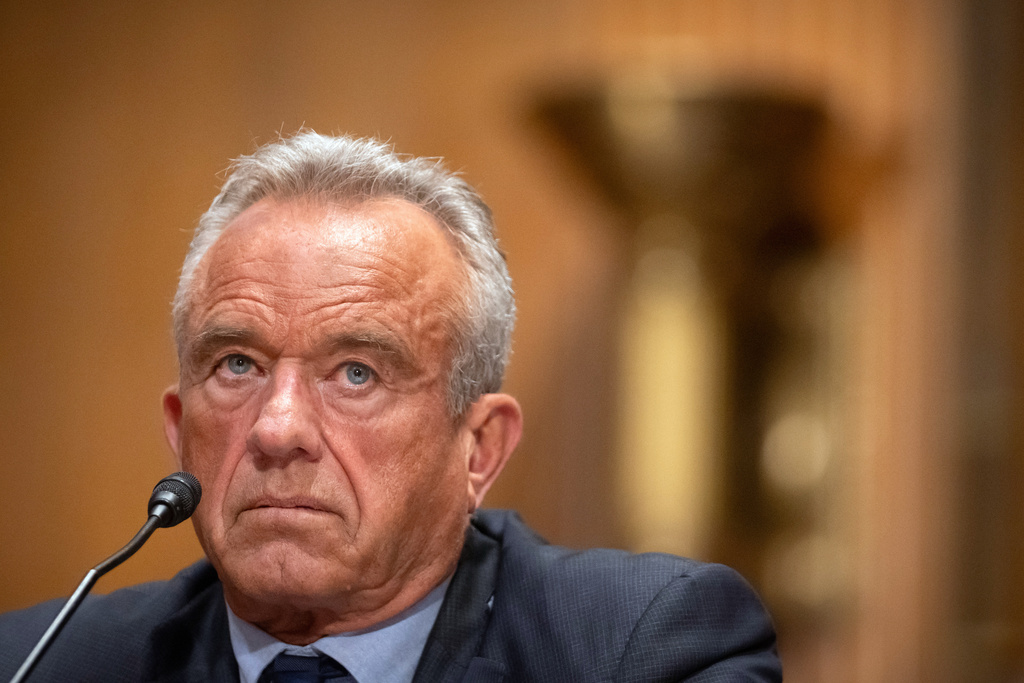The Trump administration is imploring the nation’s public health agencies to prioritize investigations of vaccine injuries, prescription drug use, and the cause of autism in a new “Make America Healthy Again” report focused on children released on Tuesday.
The 20-page report, overseen by Health and Human Services Secretary Robert F. Kennedy Jr., promises to put an end to childhood diseases in the U.S. by refocusing the nation’s public health agencies on the topics that those in Kennedy’s wide-ranging and politically diverse “MAHA” movement have demanded the government prioritize.
His renewed push to investigate vaccine injuries could deepen a clash between Kennedy and the public health agencies he oversees, which have been upended by mass layoffs and disagreements over his controversial policies.
Kennedy is releasing his blueprint for healthy children after weeks of tumult prompted by disagreements over vaccine policy at the Centers for Disease Control and Prevention that resulted in the director’s firing and other top leaders walking out on the job. Just last week, senators grilled Kennedy over his anti-vaccine agenda and his leadership of the public health agencies.
Kennedy’s latest report, released on Tuesday, does not make regulatory changes. Instead, it calls for the government agencies to further research a wide range of issues related to Americans’ health, though it lays out no plans for funding that research. The National Institutes of Health, which is facing a 40% cut to its budget, is tasked with undertaking much of the MAHA-related research in the report.
Under Kennedy’s plan, the government would ramp up investigations of vaccine injuries and develop a framework to ensure “America has the best childhood vaccine schedule” that is simultaneously “addressing vaccine injuries.” The nation’s health agencies already investigate vaccine injuries that are reported by individuals or providers, but Kennedy has repeatedly criticized the current process.
An earlier version of the report was first leaked and publicized in August. Slight changes have been made to the final draft, which was developed by a “MAHA” commission that included Kennedy and other members of the president’s cabinet. Despite pledging “radical transparency,” the commission never held a public meeting ahead of the report’s release.
Among the differences in the final version of the report released on Tuesday is a call for the National Institutes of Health to use personal medical records and health insurance claims data to investigate the cause of diseases and disorders, including autism.
“The NIH will link multiple datasets, such as claims information, electronic health records, and wearables data, into a single integrated dataset for researchers studying the causes of, and developing treatments for, the chronic disease crisis,” the report says.
Kennedy has vowed for months that he would unveil the cause of autism, a complex developmental disorder that impacts the brain, by September. He has promised to execute a massive research effort to identify the disorder’s causes, but has stayed mum on details regarding who is conducting that research and when it will be released.
Last month, President Donald Trump pressed Kennedy for his findings during a cabinet meeting.
Those who have spent decades researching autism have found no single cause. Besides genetics, scientists have identified various possible factors, including the age of a child’s father, the mother’s weight, and whether she had diabetes or was exposed to certain chemicals.
The “MAHA” report addressed a number of other issues, including ultraprocessed food consumption, water quality, fluoride and the use of prescription drugs in children. Agencies, including the health department and the Department of Justice, should increase enforcement and oversight of prescription drug ads, especially those published by social media influencers and telehealth companies, the report says.
(AP)












One Response
Why are only Trump & RFKjr the first officials to only want the get to the bottom of this??? The lack of scientific curiosity is deafening for a condition that has now reached epidemic proportions – one of every 36 in USA!